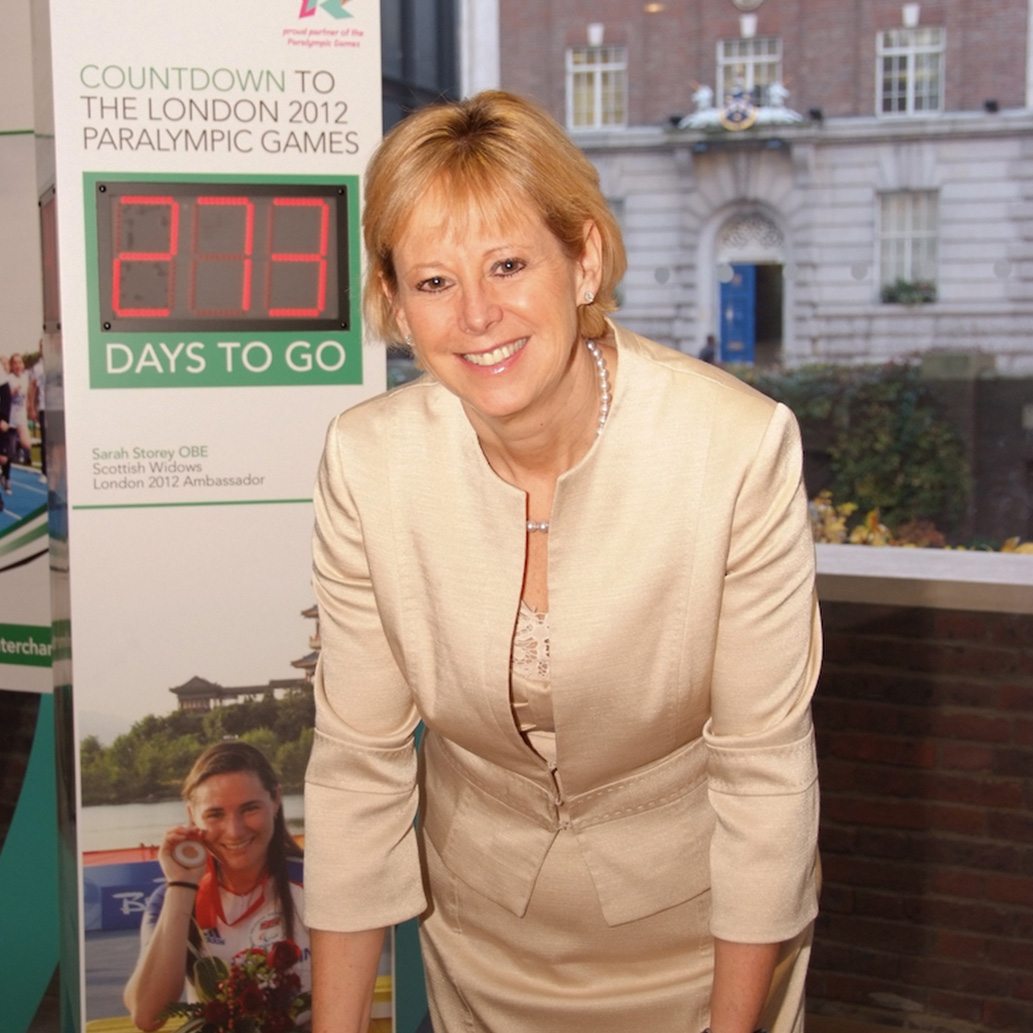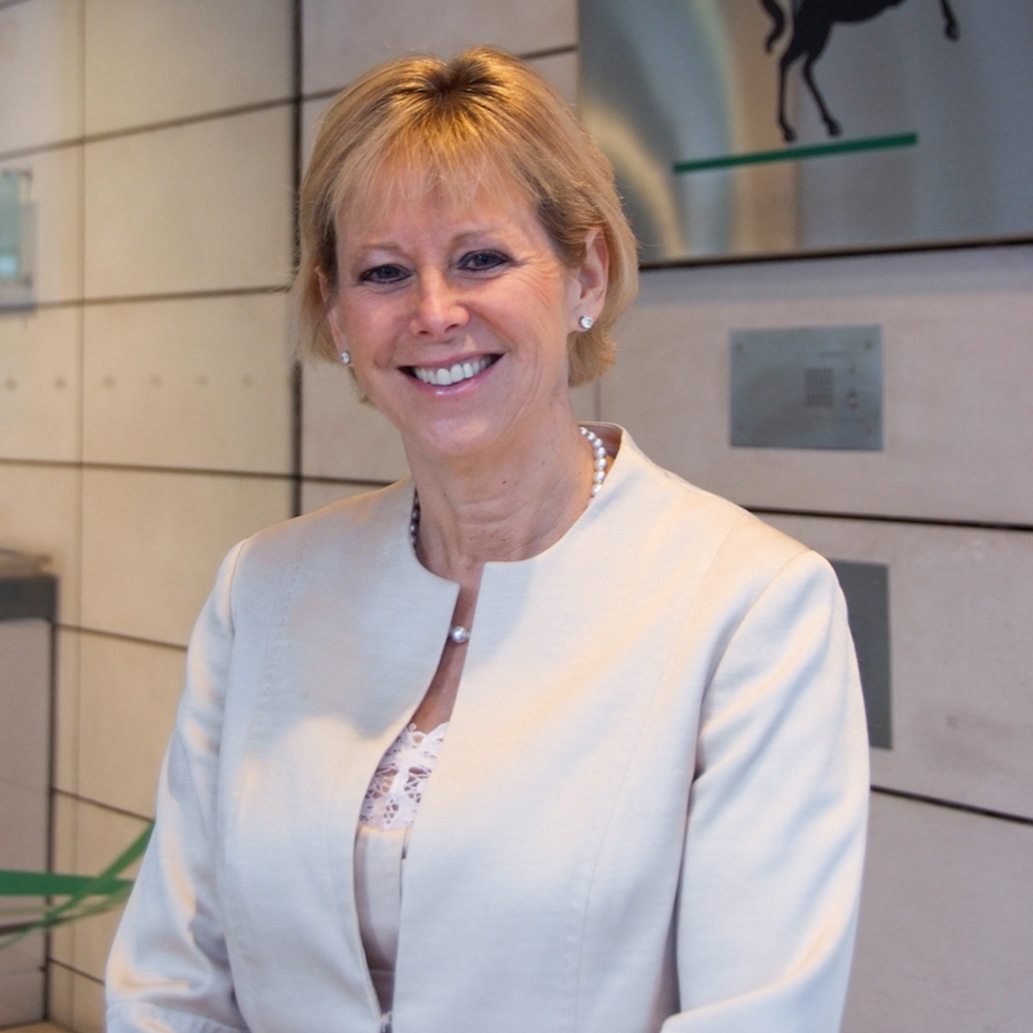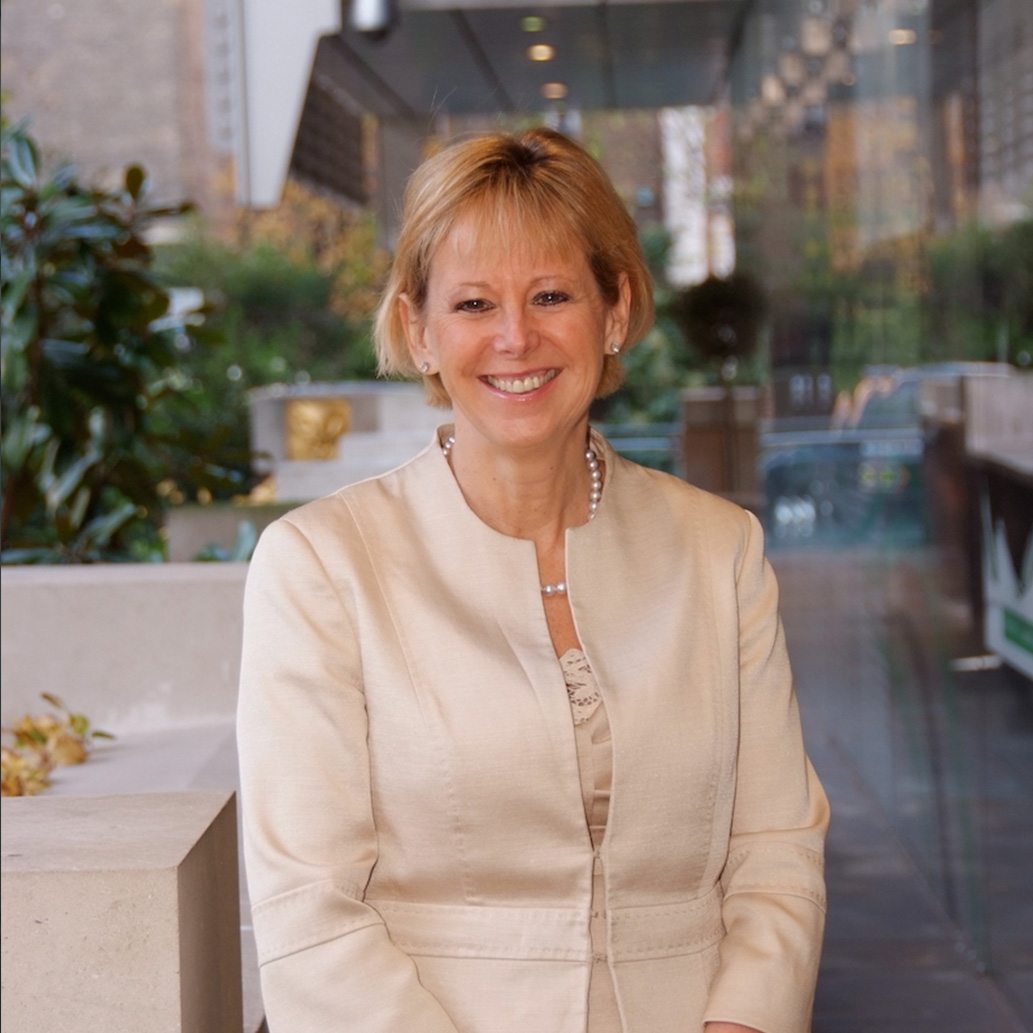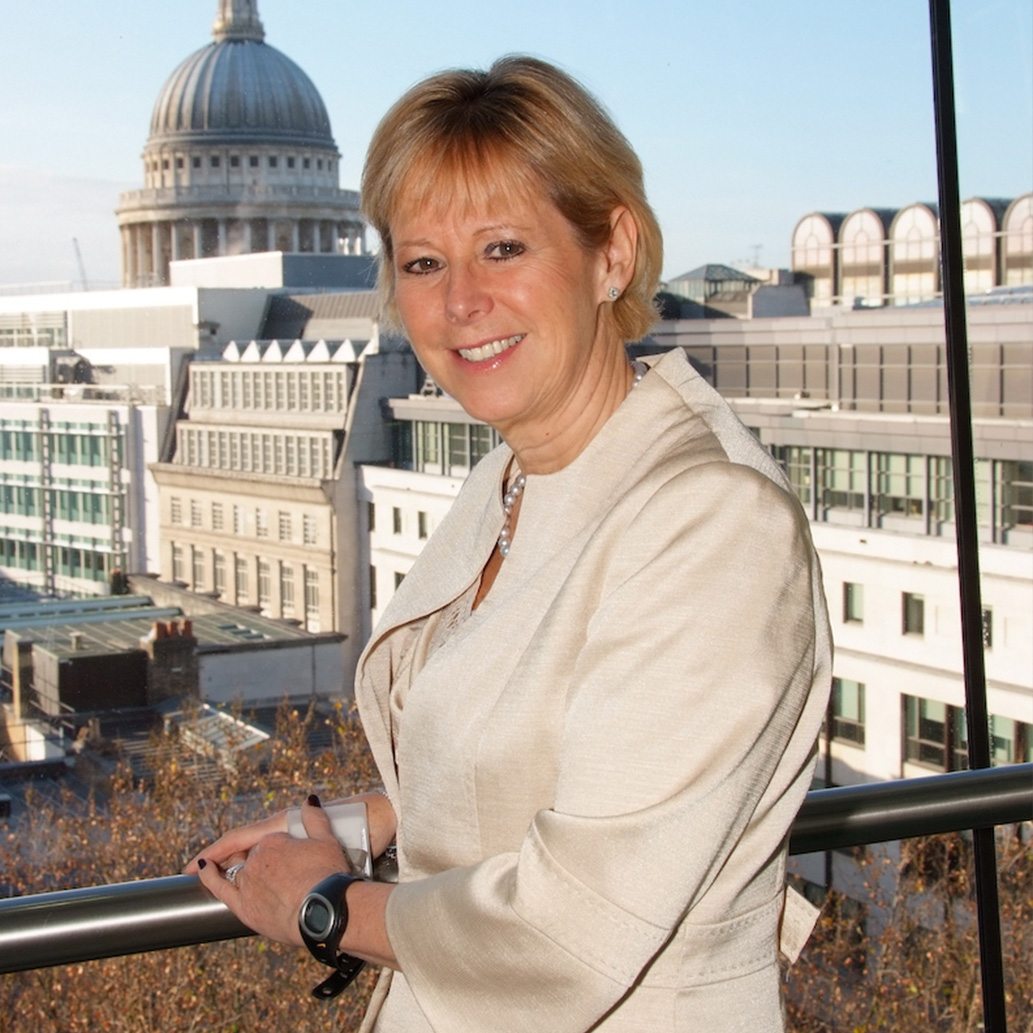Angie tell us about your early career and why you decided on a career in HR?
I did a degree at a university that included some psychology, some sociology and law, and a whole lot around business and economics. From there I began to gain an understanding and interest in people. I spent a year at IBM and then got into my first graduate training scheme which was my first real position in HR. This role inspired my focus for the next 30 years and was responsible for my developing interest in managing and championing the ‘human’ element of the business. I secured my first proper HR role with United Biscuits, where, and it seems amazing now, my role was focused on recruitment specifically for women. The job was very hands-on with regards to running and managing shifts on the factory floor and had a big impact on me as it gave me an understanding of the people aspect of the business and, notably, best practice on bringing new people into an organisation.
From factoring, I moved into the restaurant side of the business , working with all sorts of brand names that aren’t around today like Pizza Land. Here I became the personnel manager at a time when the business was rapidly expanding. I was on what United Biscuits called its, ‘fast track’ programme, I was 25 and I remember the conversation with my manager who said “great news, you’re on a fast track programme, bad news it’s going to be ten years before you get your next senior position”. So I moved to join Pizza Hut when it was still quite a small company, a joint venture by Pepsico and Whitbread, both very good organisations, and six months later I became the HR director of Pizza Hut. It was a big job to have at a very young age; I sat on the management team of a board which exposed me to the business’ operations engine and provided me with great insight into how businesses operate. I had a couple of very good bosses and I was rapidly developing as an HR professional, on a board of directors who were making a huge contribution to the growth of the business.
I was then faced with two career options, go with Pepsi and move to New York or go to Whitbread to front HR in their new hotel proposition, and I chose Whitbread. At the time I was getting married, my husband was running a business in the UK and therefore couldn’t move to New York and I didn’t want to go without him. I think I made the right choice it was a very good organisation to work for and I became the HR director, at which point the role grew rapidly as did the hotel company – which was then developing the Marriott and travel Inn brands which went on to become Premier Inns. This was an important milestone in my career, it was a very people-orientated board. I then moved out of HR for a while and had a foot in both camps as customer services director for Whitbread, working with the chief executive on organisational management and development, so I had really experienced a great deal of variety in every part of business. And so I was appointed senior executive, and then went back to be HR director of Whitbread restaurants, and then at the age of 28, group HR director, sitting on the main board, with responsibility for about 50000 people across the Beefeater, Brewers Fare and Pizza Hut chains, as well as Travel Inn, TGI Fridays and Cafe Rouge.
I was with Whitbread for over 18 years, grew up in the company and was fortunate enough to be on a number of other organisations‘ radars, including being considered for the HR director of Lloyds. And I had, I think, 15 interviews with the chairman, the executive team and went through a full assessment, I thought they were looking for reasons to not appoint me because I’d never worked in financial services before, unquestionably it’s very different to hospitality, but the issues are very much the same and I secured the role in 2006.

And this was the time when things changed...
Yes in August 2007 Northern Rock went down and then September 08 Lloyds and HBOS merged, this was formalised in 2009. My role here so far has involved three years of very fast-moving integration, bringing two organisations together and harmonising the people aspect, reporting to the CEO with a very broad remit – it has been a whirlwind of a time.

Did you feel that you had all the necessary tools and capabilities, for what must have been an extraordinarily vast and complex undertaking?
Yes I had good grounding with PepsiCo and Whitbread, and I knew that the key to success was ultimately down to customer satisfaction and that was the fundamental core of the programme. Happy people make happy customers and happy shareholders, and this all hinged on a company’s core values. For us that is respect, care and consideration for our people. As an organisation we were and remain very people-orientated with strong leadership skills at all levels, and this has kept the ship steady in some pretty rough seas. For me, what we are achieving and working toward our core HR values.

This must have been an extraordinary experience for you during these tumultuous times, give us an idea of what it was like.
Yes the financial sector was in a mess, but if any bank was going to be able to keep the trust of its customers, it was going to be Lloyds, its “Britishness”, like that of Marks and Spencers, is an important element. It’s all about the brand’s integrity, its values and the people that make it tick. From the board to the high street branches, we have decent, dedicated people trying to do the right thing. I think if the culture is right, nothing is impossible. I had a very steep learning curve and I’m still learning five years on, but my experience really stood me in good stead. As for the meltdown in the financial sector, I don’t think it was a shock as such, but how events unravelled was hugely challenging, particularly for a generation of people, who had only ever been operating in good times. In a financial crisis that was very deep, it was, and is, very important to keep people focused and motivated and you need to be resilient yourself. For us it came at the same time we were integrating two large financial service firms. As a company going through an integration, the first part must always be about people and culture. From the start, everyone was very clear on their objectives and we put the top few hundred in place in a few months which was crucial – we had to ensure we had controls and management in place very early on. We harmonised our performance management programme so our people knew how they would be assessed and put in a new leadership model for Lloyds.
What is your perspective on what went wrong with the culture in the financial sector that made it got so wrong?
I think it’s a very complex conundrum, but I’m trying to peel back the onion here. It’s not just about what the banks have or haven’t done, it’s about society. We’ve all been brought up in a world where borrowing money, having overdrafts and having credit cards is the norm and that has been allowed to grow to a point where it is literally unsustainable and dangerous and I think that is the root cause. Traditionally, banking was about expedience and safety first but the onus completely changed. Going forward, it is crucial for the banks, regulators and Government work together to make the changes necessary. Banks should be at the heart of our society and I think it is very sad there is this lack of trust in the sector. But looking specifically at HR, we have the opportunity to create a responsible culture.
But the fact is there is the so-called “tent city” protest, just 200 yards from your door, and still the press is able to have a field day with financial institutions dishing out huge bonuses.
We are working very hard to re-connect. Earlier this year, we were the first bank to come forward and make a provision for PPI miss-selling claims and in my view, this was the right thing to do. Primarily we are a retail and commercial bank, with the majority of our people on salaries similar to the national average. Our staff are committed to putting customers first, and there are times when they face frustrated customers but we genuinely believe that we can earn that trust back and importantly we are working hard to do just that.
You spoke briefly about going back to core values and focusing on grass roots, what are you doing in these instances?
Earlier this year with the appointment of Antonio Horta-Osório, the current CEO, we created our Group “Strategic Review”. Over the next few years, we will be working on those initiatives, many of which our customers are at the heart of. We have a series of initiatives that are about building our business propositions, and upgrading our branches and we have announced that we are launching Halifax as a “challenger brand”. As a business we have presence in nearly all UK communities and this means we have an opportunity to touch all of those communities through our work. We believe that Lloyds’ future is interlinked with British society and vice versa. We recognise that we have a responsible role to play. We have a very strong communities programme, a charity of the year, and of course we are a key sponsor of the Olympics of 2012. My favourite initiative is all about us building a high performance organisation through creating a leadership identity for Lloyds, and getting to the core of what is it that makes people successful.
And what about workforce planning?
We are working hard to develop our talent pipe-lines internally, as I strongly believe in bringing people up through the business, rather than simply looking outside of it. Since the merger we have made approximately 30,000 role reductions and we have another 15,000 to make over the course of the next few years. This is unfortunate but necessary so we do what we can to redeploy and relocate those people affected. In order to develop our staff and ensure that they are rising up through the business.
And it is still necessary to make a specific point of promoting inclusion?
Very much so, as a woman who has succeeded in a business that is understood to be male-orientated, I think it is essential to make a specific point of promoting women in their careers. My concern is it that it doesn’t get worse than it is, it has to get better.
We’ve signed up to the Lord Davies proposal of achieving 25 percent of women on our board of directors. Previously, I might have avoided this issue but there is no evidence of improvement, so I am now fully active and strongly believe in the need for change. I think we all need to do something different as all the signs are telling me that we could go backwards if we don’t. The Group has also overhauled its performance management programme and we’ve created academies where over 75 percent of people at Lloyds, at the end of each year, can see what they need in their development and what opportunities they have.
The problem is, the press only chooses to report the bad things that banks are responsible for, all the bank brands have taken a battering.
This is a fantastic business to work for, it’s tough, but so is every business. In terms of things we’re doing to help people grow their careers, our work in the community is significant; we have our Lloyds foundations and our charity of the Year Save the Children (for which we have already raised £1.3 million). We have just launched our first Lloyds Scholars programme, which supports people who come from disadvantaged homes we sponsor them to work for us for two summer internships, and that’s 30 young students who might not otherwise have that opportunity. We always encourage our people to do voluntary work, for example last year we had an initiative called One Heart for HR, where we raised 85 thousand pounds for the British heart foundation through this initiative alone. This year we’re also spending time with students in schools, advising them on their CVs and gaining work experience.
This must be useful in changing cultures.
I do agree, it builds a sense of responsibility and respect for others, which was clearly missing in part and undoubtedly had a role to play in the financial crisis. Without doubt, a sense of responsibility is integral to motivating people to make their own way in life and business rather than the pervasive culture of “what’s in it for me”? At Lloyds we have our “go for gold” programme in which people are nominated because they have demonstrated strong values through the work they have done in their local communities. As part of our Olympics sponsorship we have recognised and rewarded some of these colleagues with an opportunity to attend the Games, I hear what you say about that disconnect and we’re trying to address this. We have just launched an MBA programme and we we’re told by the universities that this will differentiate Lloyds as a good employer. But I’m sure we can do so much more.
What is your opinion on the increase in university fees?
I believe that everyone should have the opportunity to go to university, that’s not a head-in-sand statement, because some people have more opportunity than others – that is a fact of life. Saying that, I don’t believe that everyone needs to go to university, there should be more people looking at the fantastic opportunities that can come from apprenticeships, for example.
Could employers and Government do more to improve the prospects for young people, as well as re-skilling those that have been made redundant?
I think there are a lot of good programmes that have been put in place like the “right to work” programme, but I do think organisations have their role to play, not just big organisations but small businesses too, and I genuinely don’t believe people today want to be sat on their backsides. People want to be positive about life, and I think we as employers, have the responsibility to help. Recently, I gave a piece of advice to a friend’s son that because it’s so tough, you can’t just hold out, if there’s a job offer, go for it! It’s about getting experience and being in the workplace, and getting up in the morning and earning money, even if it’s not exactly what you want to do, go for it.
Does it baffle you that equality is still an issue, for example the very low percentage of women on the boards of the FTSE 100?
I don’t think it baffles me, I think I’m just disappointed, our communities are incredibly diverse and we should be really reflecting that in our business organisations. I’m very sad it hasn’t moved on in any meaningful way and that’s why we’re working so hard to make a difference here at Lloyds. Years ago, I would have never dreamt of championing the cause of women’s career mobility. Certainly, anecdotally, I’ve never experienced the glass ceiling, but that’s not to say it doesn’t exist, it certainly does. I guess I have been lucky with the organisations I’ve worked for.
Where's is it going wrong?
Where is it going wrong? I think there’s still a bit of the ‘boys’ network’ and we need the ‘women’s network’ to go with that. I do think women have to be very sure about what they want and be very focused on that. I was at a women’s network recently where a number of women said that women have choices but it is up to organisations to support those choices. I do talk about work and life balance and I want to support it and we do what we can as a business.
At the group, we have developed a very flexible portfolio of working hours, but I do think that prejudice remains. Women with families and demanding jobs need to work with their employer to find a way of working that suits both of them. What’s enabled me to have a career and a family is, I have a husband and children who respect they have a hard-working mum and support me. It is important that when women have children, we keep in touch with them, keep them in the fold. These are, of course, talented people whom we have invested in skills, knowledge and capability, it would be foolish not to maintain contact and keep these skilled women in the business.
It’s an often quoted phrase, but it’s getting increasingly difficult to have the right people with the right skills at the right time.
I think to start at the top, you must understand your group strategy, your people strategy, the people you need and the training and learning agenda and crucially that training as to be pertinent and affordable. For example, we can use either community activities or leadership activities to develop people, both can work equally well. We always encourage people to really challenge themselves, and get involved in things outside the business. I climbed Kilimanjaro last year and I did the London marathon and the three peaks, I’ve also been a school manager and on my third board with a company called Serco, and been on the low pay commission for six years. Going back to being responsible for your own destiny, I take my development very seriously and it shouldn’t just be driven by the business you work in but your own agenda too. I always say to people, don’t just wait for Lloyds to offer opportunities, take the initiative and forge your own future.
Where do you think you are with your plan?
We’re well on our way! We have a very strong senior management team, working well with each other and we have the leadership in place, and the strategy agreed. We announced the strategy at the end of June and we will deliver it over the next three to five years. We recently completed our integration where we touched 30 million customers and it went astonishingly well. We’re making things simple for our customers and our people, and I’m very positive about our future.
You have an enviable CV, what has driven you to achieve so highly?
There are a number of factors, one is support from my boss and parents, and my father was a great career councillor. I’ve had fantastic support from home, and I’ve always had ambition, drive and I’m a pretty competitive but I also think luck comes into it, good opportunities, being very positive and even in the grimmest times, I look for the positive. And I’ve worked with excellent people, and I’m certain that you don’t get anywhere without the right people with you.












